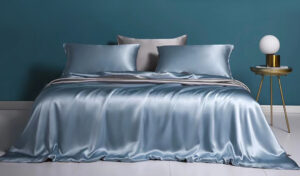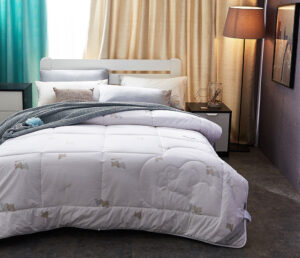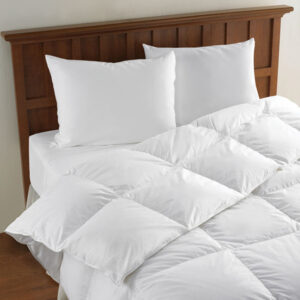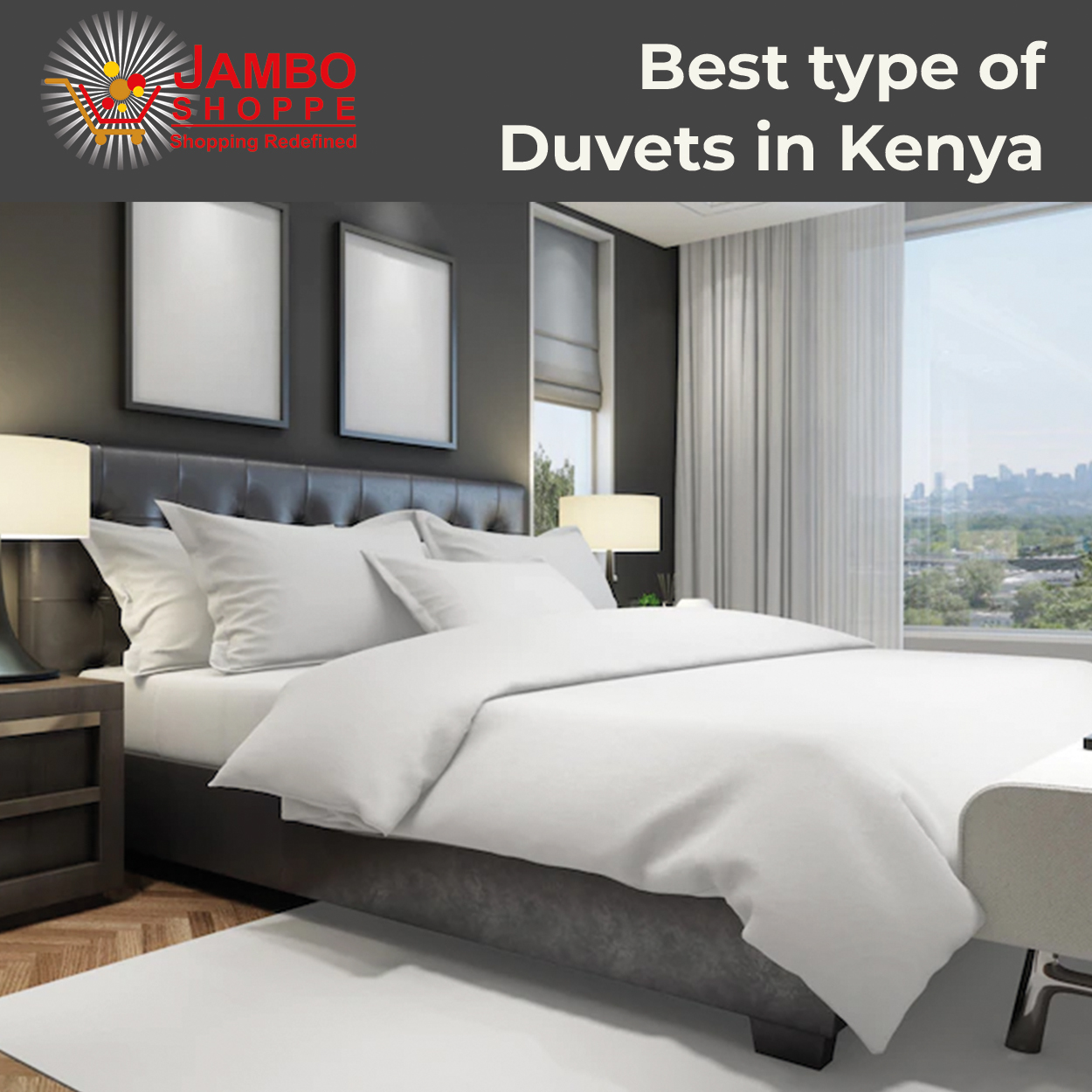Duvets are one of the coolest bedding options because, despite their lightweight, they can provide warmth during sleep, and some will even control the amount of heat by expelling/absorbing excess. The best types of duvets in Kenya and factors to consider when purchasing one are discussed below.
What is a duvet?
Before we get into the important aspects to consider when purchasing a duvet, let’s define what a duvet is. This is a sort of bedding consisting of a soft flat bag that may be filled with a variety of items. The filling is usually feathers, down, wool, silk, or cotton, and different fillings are used for different duvet kinds. It is used to cover yourself while sleeping and is frequently encased in a case, similar to how a pillowcase is used to cover a pillow.
This bedding is named after a French phrase that means “down” in English. It’s known in American English as a “comforter,” and it does provide extra comfort when sleeping, though other bedding covers can also be termed that.
What to consider when choosing a Duvet for your bedroom
- Size
This is something you should be very careful about; the size you choose should be proportional to the size of your bed and mattress. The recommended duvet size is the one that corresponds to your bed size. For example, if your bed is 3X6, you should select a duvet that is 3.5X6. This ensures that the duvet completely covers your bed. The following are some common standard sizes of duvets(width by length):
- 3X6 Duvets
- 4X6 Duvets
- 5X6 Duvets
- 6X6 Duvets
- The filling
A variety of products can be used to fill a duvet. Down, silk, wool, or feathers are commonly used as fillings in duvets. When searching to acquire a duvet, the synthetic micro gel is also an option. The tiny feather that lays beneath a bird’s actual feathers is referred to as down. You don’t want a burden on your top when you’re sleeping. As a result, the duvet you choose should be light and warm at the same time.
- Ease to clean
When it comes to washing the duvet, it’s not just about how easy it is to wash a duvet; it’s also about the type of washing you do. Some duvets can be hand-washed, but they may be damaged if washed in the machine. So be mindful of such information when looking to purchase a duvet.
If you do wash your clothes using a washing machine, make sure to select the light cycle. It should also take less time for a nice duvet to dry.
- Hypoallergenic options
If you have sensitive skin or allergies of any kind, silk or bamboo, both of which are hypoallergenic, will give you the finest results. A hypoallergenic duvet is one that is made of materials that are not known to cause allergies.
Most duvets are hypoallergenic, as we’ll see below, but be sure to verify which types aren’t, as well as the manufacturer’s description.
- Color and patterns
While this is a matter of personal preference, your selection should be appealing and brighten up your bedroom. The color or pattern should also complement the rest of your bedroom’s decor.
Duvets are available in a variety of colors, images, and patterns. Patterns might be a combination of colors or drawings, whereas images are usually representations of various elements such as animals, birds, rivers, and so on. You can choose from a wide range of plain colors, such as white, red, black, green, and so on.
Best Types of Duvets in Kenya
Silk Duvet

Silk duvets are considered a luxury item and are not widely used. This is possibly due to the fact that they are costly and hence require someone with a large budget. Silk duvets are distinguished by their lustrous appearance.
When you invest in a silk duvet, you will not only enjoy a warm night, but you will also benefit from its hypoallergenic and mite-resistant properties, allowing you to sleep well and peacefully. To avoid damage, be cautious when washing, especially in a washing machine.
Hollow fiber duvets
These are the most popular duvets in Kenya, and their prices are lower than those of other duvets. The hollow fiber duvets are comprised of hypoallergenic synthetic materials.
This duvet may be simply washed on a regular basis, whether in the washing machine or by hand. Duvets have the disadvantage of lasting for a shorter amount of time.
Feather and down
Feather duvets, like wool duvets, provide a warm night’s sleep. They’re fashioned out of bird feathers. Duck down is tiny and light, making it ideal for those who prefer to keep cool. Goose down, on the other hand, is more insulating and warmer.
Such duvets should be washed with caution, and only by hand, as machine washing will harm them.
Wool duvets

Wool duvets are manufactured from the wool of animals, the most common of which is sheep. As you might expect, they provide adequate warmth and also serve to cool you down when it becomes too hot.
The duvets are hypoallergenic and dust mite resistant. Washing at high temperatures or on a regular basis will soon degrade the duvet.
Microfiber duvets

Microfiber duvets are ideal for those who prefer a lighter-weight duvet. Like hollow fiber ones, they’re frequently composed of synthetic material.
The problem with these duvets is that, due to their small weight, they do not control heat and do not last long. They are, nevertheless, simple to wash and, due to their small weight, will dry rapidly.
Conclusion
Overall, selecting the ideal duvet is a matter of personal preference and requirements. Begin by determining what level of warmth you require, and then narrow down your options by considering factors such as filling, durability, and washability. Finally, a quality duvet is an investment that can last up to 20 years… That’s 20 years of better sleep (and higher life quality)!
But don’t worry if all of this information seems overwhelming. You can browse our online store (Jamboshop) or chat with us on WhatsApp, and we will be able to better assist you.
Related Post:
- What Are The Types of Bedding Needed For A Luxurious Bed:
- 5 Home Essentials every Guy Should Have in his Apartment


